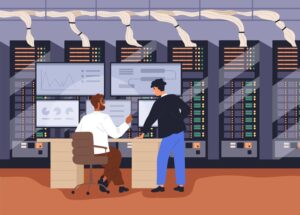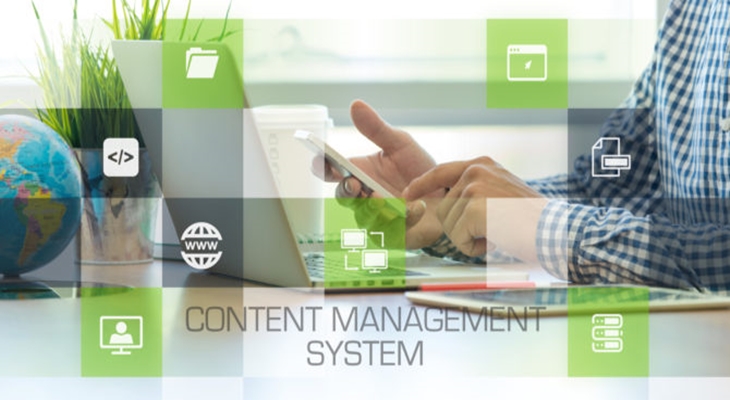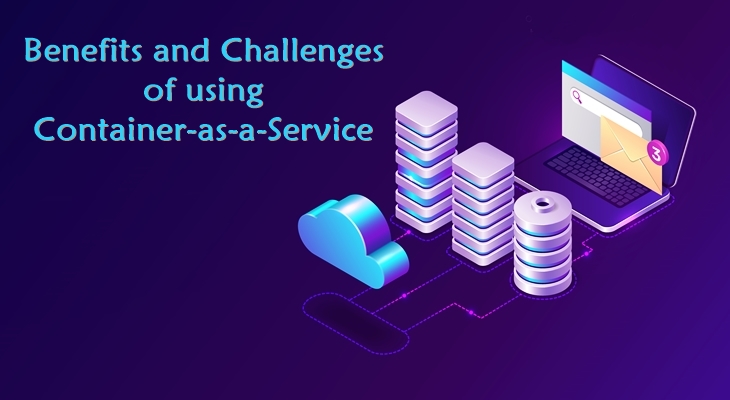Data centers are the powerhouse of any business. They store and process huge amounts of critical applications and data. In simple terms, a data center is a location that utilizes networking and computing equipment to collect, store, process, distribute, and enable access to resources. According to reports, the global data center market is anticipated to grow from $215.8 billion in 2021 to $288.3 billion by 2027, at a CAGR of 4.95% from 2022 to 2027.
Managing these data centers takes a lot of work. There comes the need for reliable and efficient data center management that removes all the burden! In this blog, we'll demystify data center management and shed light on the main components, the role of DCIM software, challenges, and more.
Knowing What’s Data Center Management?
Data center management is defined as the set of tasks and responsibilities the organization takes care of to operate the data center and ensure its security, efficiency, and performance. An IT expert, typically a data center engineer, looks after all the technicalities and management. This involves managing software, hardware, resources, and more.
The Major Data Center Components
Regarding data center management, key components could be more negotiable. Here's the list of the same:
Hardware Management
This includes looking after the main physical assets such as storage devices, servers, and more. Regular updates and maintenance are needed to ensure the hardware is running smoothly without interruptions.
Software Management
Protecting your organization's sensitive data is crucial. This involves implementing several security aspects, such as firewalls, intrusion detection systems, and regular security audits.
Power and Cooling Management
Data center cooling is essential for maintaining a perfect operating environment for all the equipment in a data center. At times, systems generate heat without cooling mechanisms and are prone to risks such as failures and overheating.
About the DCIM Software
DCIM software offers the required tools and functionalities for monitoring and managing ongoing data center operations, such as power consumption, cooling, resource allocation, and more. Examples of DCIM software's are:
- Datadog
- NetBox
Advantages of DCIM Software:
Capacity Planning
Anticipate the future needs and scale resources accordingly to avoid the challenges.
Improved Visibility
DCIM software helps provide precise, real-time insights into the data center infrastructure and allows the IT team to monitor and resolve issues.
Streamline Operations
The next key benefit of DCIM software is that it helps streamline workflow management, enabling all employees to focus on maintenance and other projects.
Data Visualization
DCIM software offers 3D visualization to identify the problems and avoid redundancies, if any.
What are the Tasks Involved in the Data Center?
Some of the everyday tasks involved in data center management are:
- Offering technical support 24/7
- Continuous monitoring and vigilance
- Upgrading data center hardware and software
- Backups
Challenges of Data Center Management
While data center management has many benefits, it has its own challenges. Here are the challenges listed:
Security
Cyberattackers target sensitive data stored, processed, and managed by data center infrastructure. Robust security measures are essential to prevent breaches, malware, and other threats that need continuous vigilance and regular security updates.
Capacity Management
Another challenge is meeting users' demands with the resources available. For example, at times, the users' demands must be high, but there might be a lack of resources.
Real-time Reports
Offering real-time insights into the data center operations at any time is often complicated.
Compliance and Regulatory Requirements
Data centers must strictly abide by all industry standards and regulations related to data security, privacy, and other issues. Furthermore, keeping up regularly with changing updates and regulations can be quite time-consuming and complex.
Cost
The limited budget allotted to what is usually considered a non-value-added cost for the organization is consumed by energy and cooling costs, IT staff, and private data center expenditures.
Key Takeaways
Data center management is crucial for running its core services smoothly. It takes complete care of all the critical tasks such as data storage and distribution, regular backups, updating software and hardware, plus much more.
Further, managed IT service providers offer an ideal solution for businesses looking for expert data center management. This way, businesses can focus on their overall growth strategies rather than worrying about IT infrastructure concerns. To keep informed of trending IT topics, visit our blog section now.
Also Read:
Personalizing Customer Journey: Role of Data Analytics
Knowing the Best Competitor Analysis Tools to Boost Your Business in 2024







